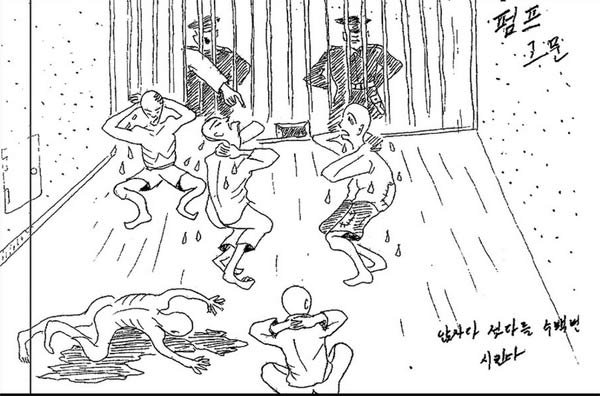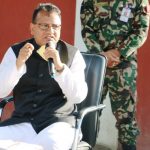Kushal Pokharel
Context
The course of development of the advanced countries is marked by a critical juncture of economic resurgence. Be it the case of U.S. which attained greater heights after the end of the civil war or it’s about Japan’s economic boom in the aftermath of the second world war upto the end of the cold war , a particular turning point has shaped the development trajectory. Sadly, in the context of Nepal, a major shift in economic history still remains elusive.
Despite frequent changes in political system over the last two centuries, the economic overhaul is a long overdue. Ranging from the Ranas to the Shahs and recently even in a federal democratic republic system, the problem continues. Moreover, economic prosperity has never become a real national policy agenda with the elongating political transition. Irrespective of any political system, the vested interest of petty rulers have reigned supreme over the national interest of prosperity and development.
Consequently, the country’s economic growth has hovered around 3-5 % over the last sixty years. With a meager per capita income of $377 and 138th HDI ranking, the economic statistics paint a gloomy picture. Although there was a brief improvement in the economic rate particularly with the restoration of democracy in 1990 followed by a vibrant privatization policy, it couldn’t last long owing to political bickering. It is a worrisome fact that repeated cliche of economic revolution have aroused nothing but frustration among the public and their dream to see a prosperous Nepal within their lifetime is shattered.
Status Quo-ist Mindset : Blaming each other for the mess
Having said this, it is pertinent to examine the crux of the matter. First and foremost, the functioning of the larger socio-economic and political system is guided by reluctance to change. The mindset of bureaucrats, politicians including general public remains the same. Stepping up to initiate change with audacity and hope is definitely missing. The common response is why even bother when nobody does. How can we go against the deep-rooted norms and tradition to induce change?
And blaming each other for the entire mess of the country has become dominant. For instance, politicians argue that the hierarchical and rigid bureaucracy of this country doesn’t allow for rapid transformation, In the same way, the bureaucrats view politicians as an obstacle to execute any ideas of growth and development. Coming to the public views, they enjoy criticizing other officials but never bother to assume some serious responsibilities at the level of his/her family and society. Waiting for a miracle to happen and cursing the politicians and bureaucrats is definitely not producing any constructive feedback mechanism at the level of state and administration.
Secondly, lack of accountability and transparency in any type of transactions including procurement, distribution among others is increasing. Both at the state and non-state level, seeking political patronage and adhering to nepotism and sychophancy is pervasive. Even at an individual level, the non-transparent, unaccountable and unethical behaviors are increasing everyday. These things are taken for granted and have almost become a norm of our society.
Thirdly, focusing on process rather than outcome is a defining feature of our development administration. The sluggishness of economic growth owing to more procedures involved in any economic activity is a testimony to this. Whether it’s about taking license and opening up new innovative ventures, the bureaucracy instead of facilitating messes up the other way round.
Needless to say, the political interference in every sector of our society and economy has aggravated the problem. Instead of getting indulged in strategic visioning for the country, our political heavyweights are concerned on ensuring the attractive positions for their kiths and kins in public and private organizations at any cost.
Summing up, the state fails to make the enabling policy environment to advance the national economy. The extractive nature of state leaving its ordinary citizens ’empty-handed’ is a serious concern.
Ray of Hope
Of late, the exciting news of Nepal’s path towards economic advancement with increasing investment in infrastructures like roads and energy have started coming in media.With the establishment of Nepal Investment Board entrusted to bring huge investment at macro level, things have started gaining momentum. The vibrant team of the board has recently inked deals particularly in the hydroelectricity sector which will have far reaching consequences for the country. Focusing on attracting Foreign Direct Investment in projects of national pride has also been a priority.This has sparked a ray of hope among the public.
Projects like Kathmandu-Terai fast track has also drawn unprecedented attention of policymakers in recent years which is a sign of good omen. In this scenario, the world bank in its recent report highlights the significance of investing in infrastructures to expedite the national economy in the next decade. Specifically, it says the energy and transport should constitute 75 percent of the total investment in infrastructures for economic advancement.
The above instances indicate that there is a slow but gradual shift in terms of economic visioning. In other words, economic transformation has started getting some serious attention with the realization on the part of policymakers that it is now or never to start ‘taking off ‘ for this cause.
Conclusion
It is high time that we realize our responsibilities towards the nation. Equally significant is this realization at the level of state and administration to move towards the goal of economic prosperity and development. It is urgent that the state takes a major role in creating an enabling policy framework to increase investments in the major development sectors including energy, transport, telecommunication, education, health among others. The role of state needs to be more of a facilitator, creating better incentives for the private sector to perform well.
( The writer is a graduate in Development Studies and also a Teach For Nepal Fellow)






